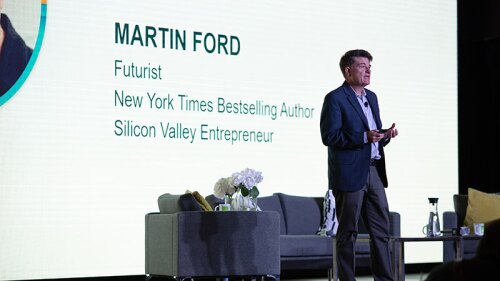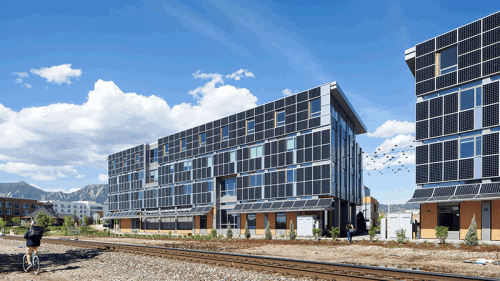Belgium Prime Minister Alexander De Croo opened the 2022 ULI Europe Conference discussing the two crises impacting Europe: war on the European continent and the lingering global pandemic.
De Croo said that Europe dealt effectively with the pandemic by putting its best minds together, using the innovative power of the private sector, to develop solutions and tapping the stability of local governments, which motivated their citizens to get vaccinated. He noted that it was the private sector that accelerated research to develop vaccines and private businesses changed the way they work to create a resilient workforce.
“When you look at it today, no one did it better than we on the European continent,” he contended. “What we did was create space for the private sector to be resilient to flip their business models to be flexible with the population when it was necessary.
“That to me is the force of what democracy can do,” De Croo continued, “and it worked incredibly well. It managed our economics through COVID in way that I think no one expected.” Everyone thought that this would lead to a tsunami of unemployment and increase in bankruptcy, he added, noting that at the beginning of this year it was clear that Europe was coming out of COVID, and “the economy was firing on all pistons.”
De Croo moved on to the current crisis and its impact on Europe. “The Ukraine War in my view is a ‘cold shower’, something no one expected to happen on the European continent, but it is especially a wake-up call for all European countries,” he said. “This is the moment when we lost our naivete. This the moment when we understood that we as Europeans need to remain open to the world but to put our own priorities first—the interests of our populations.”
De Croo noted that Russia’s President Vladimir Putin does not like the unity shown by the 27 EU countries or how the 30 nations in NATO stick together. “It’s obvious why. It’s easy to bully a small country, but it’s hard to bully a block of 30 countries around you.”
“This is a watershed moment—a moment of crisis,” he continued, citing three priorities that European nations need to move on going forward. First, is security policy. “I think it’s quite clear that if you want to have peace on the European continent, you need to show that you have the means to defend it,” De Croo stressed.
‘The second priority is energy,’ he said, noting that detaching Europe from Russia will require accelerating decarbonizing of Europe’s energy production.
“The third element is that we need to be ready to play our role in our backyard, and this means unity of the European continent,” De Croo continued, explaining that this doesn’t mean uniting all European countries under the EU umbrella, which is a lengthy process, but rather “extending open arms to countries that look at us as a ‘hammer for democracy,’ of open values and stability.”
De Croo pointed out that today more things are being coordinated by the EU, which is being pushed by European populations that realize the nation-states cannot cope with larger problems on their own. But he also shone a light on the value of local governments as a driving force in peoples lives throughout the world, noting that over the past two years the role of local governments has become more important than ever, as it was local entities that laid the groundwork for ending the pandemic.
De Croo noted that today the most interesting projects and experiments in urban life are being driven by city governments. “And we see more and more, as nation states, that we are decentralizing our authority and possibilities to cities,” he added, citing city redevelopment projects in Brussels, Ghent, Antwerp and Mechelen, Belgium, as examples of cities that have transformed themselves over the last decade.
This works because that political level is the closest to the population and has the highest level of trust by citizens, De Croo added, noting that the citizenry view the local political structure as less polarized and more functional in meeting their needs than big government.
“So that is the message I want to give you and explain what I think is the policy context in which we will be working over the next decades,” he continued “There is an incredible push to centralize things at the EU level and in giving the direction in protecting us on the big topics.
“But the real change that is close to the lives of everyone is moving more and more to the local entities—municipalities, cities,” he explained. “This is something that has been going on and I would expect that in the years to come it will be crystalized even more.”



